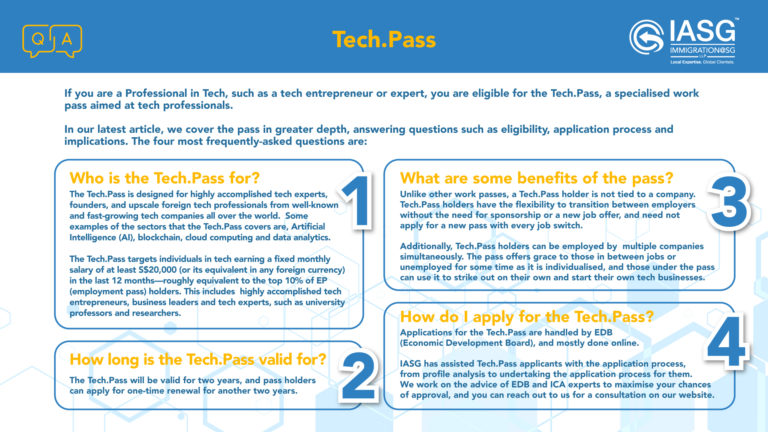What Does SEA’s Digital Economy Mean for Immigration?
Singapore-Thailand Payment Linkage
At the end of April, the Monetary Authority of Singapore (MAS) and the Bank of Thailand (BOT) announced that real-time retail payment between both countries would be linked. Specifically, Singapore’s PayNow and Thailand’s PromptPay would recognise and accept payments made (in real time), making this the first cross-border instant payment system currently in existence.
Southeast Asia’s Digital Economy
This is a massive step forward for Southeast Asia’s digital economy. By taking advantage of the instant payment system and linking it with another country, Singapore and Thailand have both shown the world that moving forward, this could become the new normal for countries, which would push current and traditional financial systems to evolve and digitise, so as not to be left behind.
Security
With this push forward into digitising, there will be a new area for most financial institutions to focus on – cross-border financial security, especially when it comes to instant payments. Not only would there be an increased need for security specialists in the financial institutions, there will be a foreseeable demand for security system developers as well – not just in Singapore and Thailand, but around the region as cross-border instant payments slowly becomes implemented across ASEAN, and even APAC.
Unique Opportunities
This presents a unique opportunity for Singapore. Singapore has been on the cusp of becoming a digital hub, and a massive move forward like this shows just why it works. Singapore has the diplomatic capabilities, infrastructure, and even the talent to become the gold standard regionally for digitization. With the success of the implementation of the instant payment system with Thailand, and ensuring its ensued success, Singapore can become the digital leader in the region to connect the various countries through its burgeoning digital economy. However, this requires a special set of talent, infrastructure and even systems development.
What This Means for Immigration
Currently, there is already an increasing demand in Singapore for IT professionals. We can expect this demand to only continue increasing, as more specialised positions become available and open. Candidates that are currently specialised in this sector should capitalise on this unique opportunity to prepare themselves to apply for their Permanent Residency or Citizenship statuses. As the country prepares to lead the way for the evolution into a digital economy in the region, hopeful applicants should begin to position themselves accordingly and apply at the most optimal time.
Whilst candidates that meet the mark in this industry will experience favour when their profiles are undergoing review, there are other policies and goals that the country has to consider before giving an approval outcome, to ensure all the other socioeconomic metrics are not being upset.







